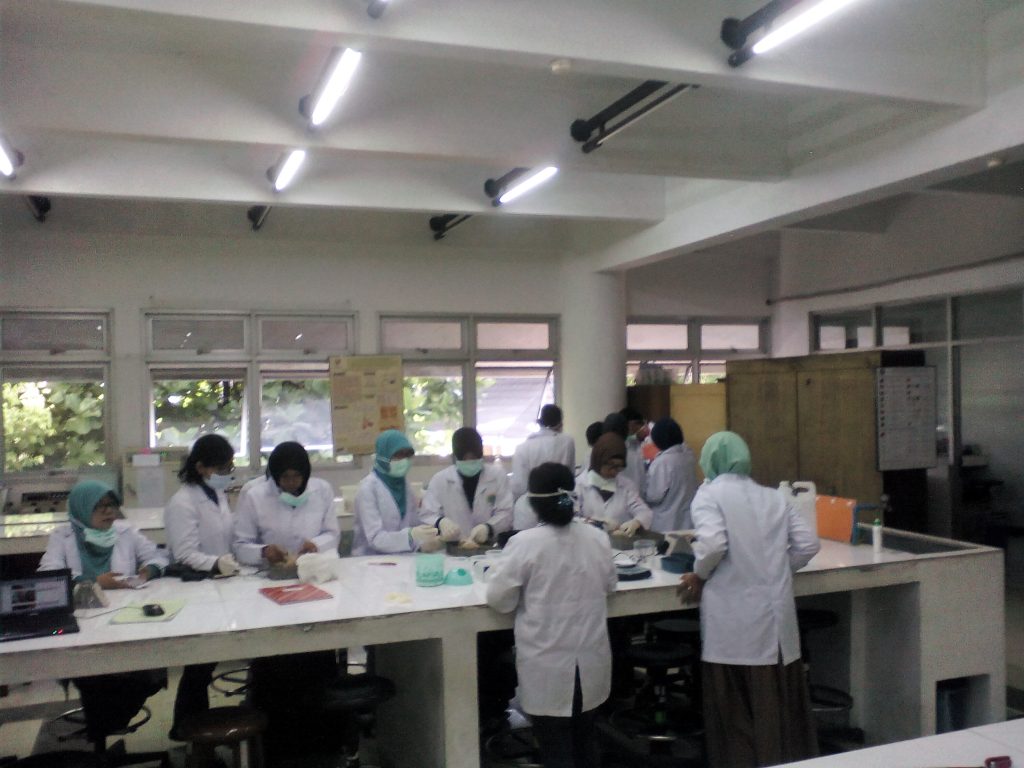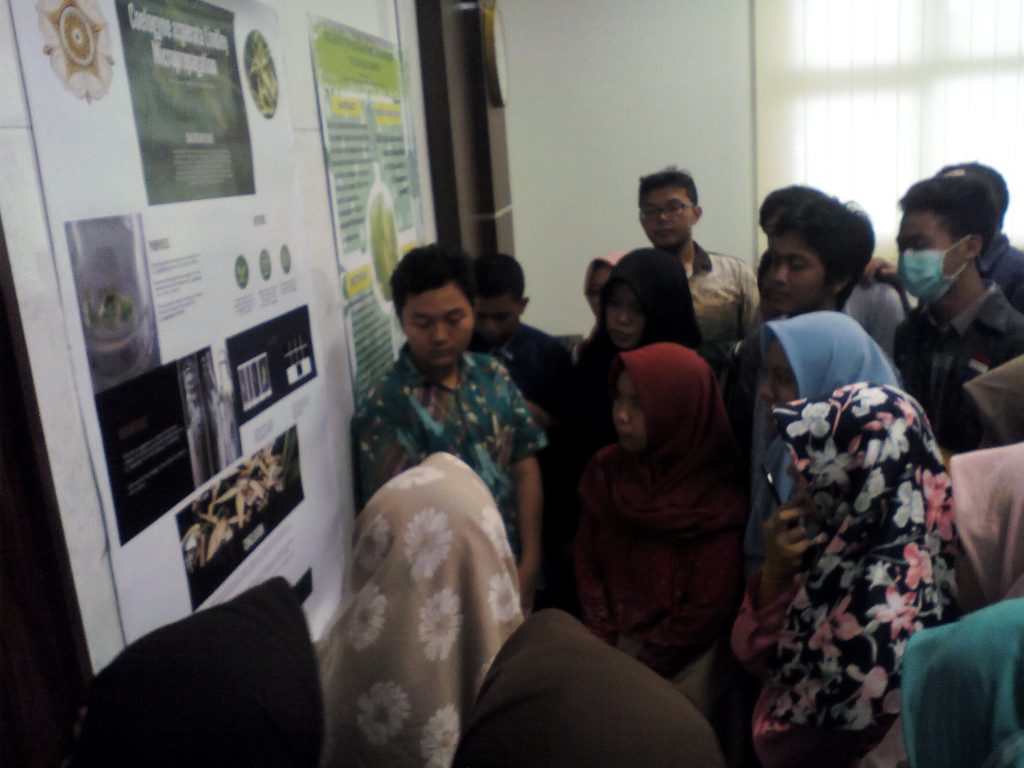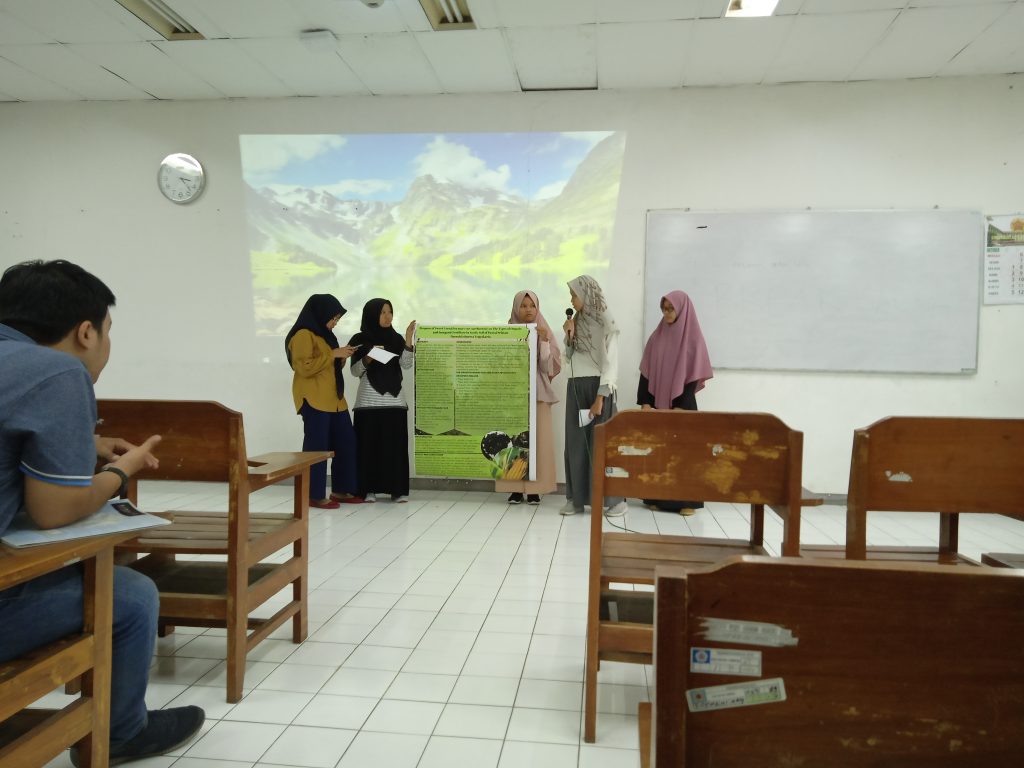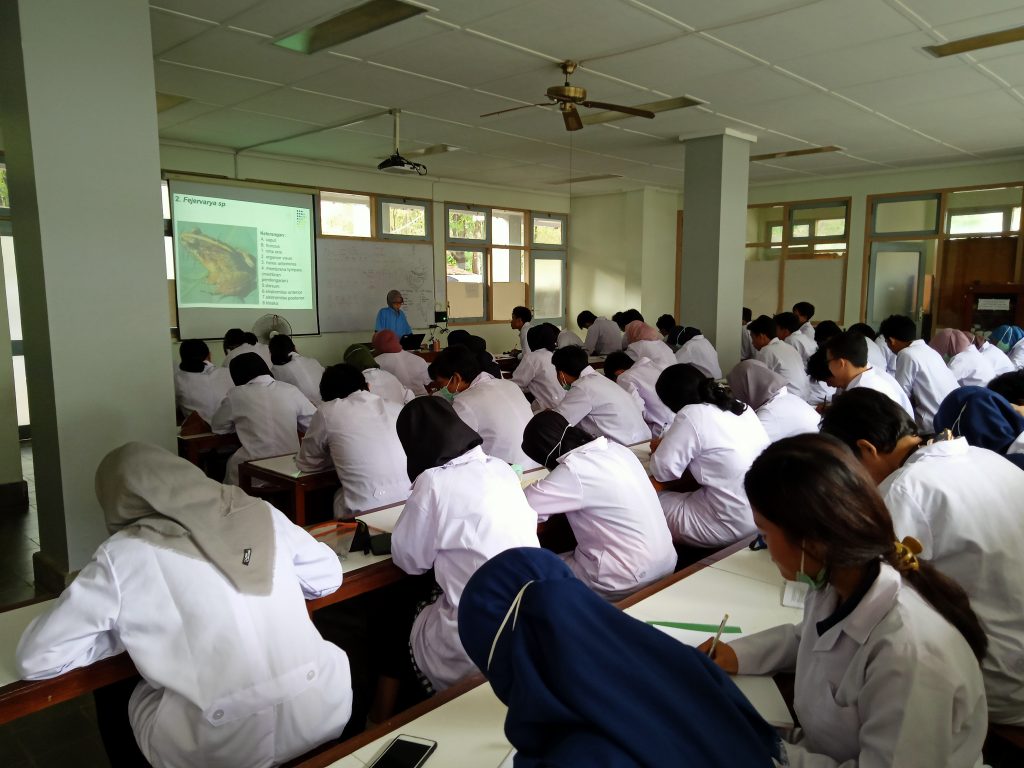I do love teaching activity. Recently, I teach undergraduate students for theoretical and practical subjects.

Laboratory Assistant 
Laboratory activity 
New student greeting 
English class poster session 
Students’ presentation 
Lab tutorial
Animal Physiology
Animal physiology course explores the functional organization and physiology of the animal body while providing a comparative framework for understanding in a broad spectrum of animal diversity. In this course, students will discover the process of coordination, connecting, and complementary systems in the animal body. The overall goal of this course is to provide the foundation for understanding the basic concepts of physiology (homeostasis) and principles of action mechanisms to regulate the body system in normal conditions. The course will build upon knowledge acquired through prior studies of physics, biochemistry, and anatomy.
Eco-physiology
Animal eco-physiology is a course that combines animal physiology and ecology. This course examines physiological adaptations that enable the survival of animals in the various environments they inhabit and the mechanisms of regulating homeostasis in the face of environmental fluctuations. It will be studied as well as how internal and external factors influence the mechanism of homeostasis in organisms in maintaining survival and breeding in extreme environments or polluted environments.
In this course, you will also learn about the adaptation of physiology, anatomy, and behavior of organisms in a number of extreme environmental conditions, including hibernation, inaction, and aestivation activities.
Endocrinology
The study begins with a history of endocrinology which aims to understand its chronology and its interactions with other subjects as branches of science. This is followed by the basics in the endocrine system in vertebrates and several classes of invertebrates. It also explained about the synthesis, secretion, circulation, and elimination of hormones. Central and peripheral endocrine organs. The Hypothalamus-Pituitary axis as the central mechanism of regulation of the endocrine system. This lecture also discusses some examples of applicable hormones in the clinical field and in other broader fields.
Advanced Animal Physiology
This course is started with a review of the basic principles in animal physiology and the concept of homeostasis, followed by a deep physiological study of a daily phenomenon. This course is equipped with several latest applications and methods of animal physiology, such as animal laboratory handling and ethics, biomedical studies, neuroscience, reproduction, etc. This course is also enriched with experimental protocols that form the basis of the current understanding of physiological mechanisms.
Immunobiology (Lab. practice)
This course started with learning the basic concepts of immunology that involve understanding the antigen, immunogen, allergen, and pathogens. It continued the basic principles the immune reaction, defense or tolerate the self and against nonself as a defense mechanism (immune response based on antigen: antibody reaction), how the immune system recognize and distinguish between self and nonself, and the consequences in case of failure of its recognition (autoimmune). This course also discusses the development of the immune system in non-mammal vertebrates and invertebrates. This suggests that the immune system has evolved and developed.
Basic Biology
The Basic Biology course is a compulsory subject at the Faculty of Forestry. This course provides an understanding of the characteristics of living things, the structure and function of cells, membrane transport, cell division and cytoskeleton, the basics of metabolism: anabolism and catabolism, the basics of genetics, the structure and function of flora in forest biological systems, the structure and function of fauna in forest biology systems, reproductive growth and development of flora and fauna in forest biology systems, biodiversity, basics of ecology and forest biosystems. Besides that, it is also learned about biodiversity conservation and evolution.
English for Biology
This course is intended for first-year undergraduate students at the Faculty of Biology and is compulsory for every Biology Faculty student. The course that is held every odd semester is intended to improve students’ knowledge and skills in using English as a second language, especially in the field of Biology. The purpose of this course is to facilitate the improvement of students’ skills in using English in scientific communication both oral and written fluently.
Animal Physiology (Lab. practice – Master program)
Animal Physiology is a branch of Biology with a central position that studies the functions of animal organs in the system, each of which performs specific tasks but interacts and cooperates with one another. The study is fundamental, prioritizing the understanding of basic concepts or working principles/mechanisms of action and comparison in various groups of animals ranging from invertebrates, vertebrates, to humans.
Endocrinology and Reproduction (Lab. practice – Master program)
The series of practice activities began with Animal Handling to introduce students about techniques related to the use of experimental animals in Endocrinology research. Furthermore, the observation of Anatomy and Histology of Endocrine Gland aims to help students understand the synthesis, secretion, regulation, function, and metabolic pathways of the hormones concerned. Furthermore, a mini-project is carried out by taking up topics related to endocrinology and animal reproduction.